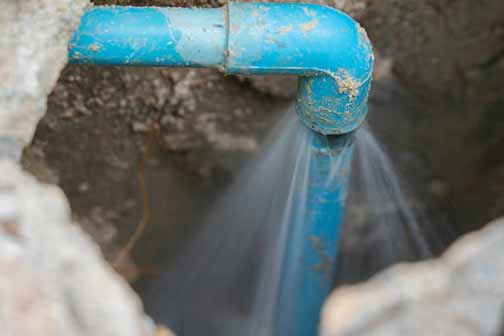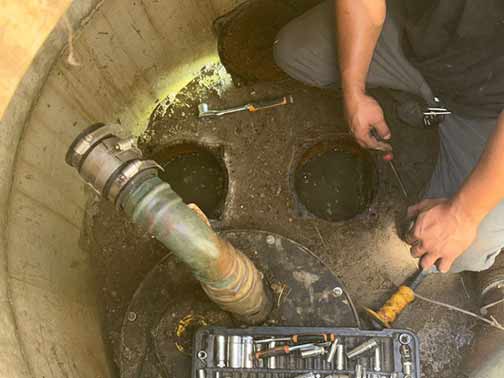
Dealing with a sewage pipe leak in your basement can be a daunting task. It is crucial to understand the severity of the situation to address it promptly and effectively. Sewage leaks can cause significant damage to your property and pose serious health risks.
The contaminated water can lead to mold growth, structural damage, and unpleasant odors. Therefore, taking immediate action is essential to minimize the damage and ensure a safe environment.
Recognizing the Signs of a Sewage Pipe Leak in Your Basement
It is important to recognize the signs of a sewage pipe leak early on to prevent further damage. Some common indicators include:
- Foul Odors: A strong, unpleasant smell in your basement can be a sign of a sewage pipe leak.
- Water Stains: Look for water stains on the walls, floors, or ceilings of your basement.
- Mold Growth: The presence of mold or mildew in your basement can indicate a sewage leak.
- Slow Drains: If the drains in your basement are slow or clogged, it could be a sign of a sewage pipe issue.
- Unusual Sounds: Gurgling or bubbling sounds coming from the pipes can indicate a sewage pipe leak.
Immediate Steps to Take When You Discover a Sewage Pipe Leak in Your Basement
Upon discovering a sewage pipe leak in your basement, it is important to take immediate steps to mitigate the damage and ensure safety. Here are some steps to follow:
- Turn Off the Water Supply: Locate the main water valve and turn it off to prevent further leakage.
- Shut Off Electrical Power: To avoid electrical hazards, turn off the power supply to the affected area.
- Evacuate the Area: Ensure that everyone in the household leaves the affected area to avoid exposure to contaminated water.
- Wear Protective Gear: If you need to enter the affected area, wear protective gear such as gloves, masks, and boots to protect yourself from harmful contaminants.
- Contact a Professional Plumber: It is essential to call a licensed plumber to assess the situation and carry out the necessary repairs.
Cleaning and Disinfecting the Affected Area in Your Basement
Once the leak has been fixed, it is important to thoroughly clean and disinfect the affected area to prevent mold growth and ensure a safe environment. Follow these steps:
- Remove Standing Water: Use a wet/dry vacuum or a pump to remove any standing water from the basement.
- Dispose of Contaminated Materials: Discard any items that have been contaminated by the sewage water, such as carpets, furniture, and personal belongings.
- Clean Surfaces: Clean all surfaces with a mixture of water and a strong disinfectant. Scrub the walls, floors, and any other affected areas.
- Dry the Area: Use fans, dehumidifiers, and open windows to thoroughly dry the basement and prevent mold growth.
- Inspect for Mold: Check for any signs of mold growth and address them promptly to prevent further issues.
Preventing Future Sewage Pipe Leaks in Your Basement
Preventing future sewage pipe leaks is essential to avoid recurring problems and maintain a safe environment. Here are some preventive measures to consider:
- Regular Inspections: Schedule regular inspections of your plumbing system to identify and address any potential issues before they become major problems.
- Proper Disposal: Avoid flushing items that can clog the pipes, such as paper towels, feminine hygiene products, and grease.
- Install a Backwater Valve: Consider installing a backwater valve to prevent sewage from backing up into your basement.
- Maintain Your Sewer Line: Regularly have your sewer line rodded out to prevent blockages and leaks.
- Address Tree Roots: If you have trees near your sewer line, be aware that tree roots can cause damage to the pipes. Consider removing or managing the trees to prevent root intrusion.

When to Call a Professional Plumber for a Sewage Pipe Leak in Your Basement
While some minor plumbing issues can be handled by homeowners, sewage pipe leaks require professional intervention. It is important to know when to call a professional plumber:
- Extensive Damage: If the leak has caused significant damage to your property, it is best to call a professional to assess and repair the damage.
- Health Risks: Sewage water contains harmful bacteria and pathogens that can pose serious health risks. A professional plumber will have the necessary equipment and expertise to handle the situation safely.
- Complex Repairs: Sewer line repairs can be complex and require specialized knowledge and tools. A professional plumber will ensure that the sewer line repairs are done correctly and prevent future issues.
- Recurring Issues: If you have experienced multiple sewage pipe leaks, it is important to have a professional assess your plumbing system to identify and address the underlying causes.
Insurance and Financial Considerations for Sewage Pipe Leaks in Your Basement
Addressing a sewage pipe leak can be costly, so it is important to consider insurance and financial aspects:
- Homeowner’s Insurance: Check if your homeowner’s insurance policy covers sewage pipe leaks and related damages. Some policies may cover the cost of repairs and cleanup.
- Document the Damage: Take photos and document the extent of the damage to provide evidence for insurance claims.
- Get Multiple Quotes: Obtain quotes from multiple plumbers to ensure you are getting a fair price for the repairs.
- Consider Financing Options: If the cost of repairs is significant, explore financing options or payment plans offered by plumbing companies.
Conclusion: Ensuring a Safe Environment After Addressing a Sewage Pipe Leak in Your Basement
Dealing with a sewage pipe leak in your basement can be a stressful and challenging experience. However, by understanding the necessary steps to address the issue promptly, you can minimize damage and ensure a safe environment for your household. Recognizing the signs of a leak, taking immediate action, cleaning and disinfecting the affected area, and implementing preventive measures are all crucial steps in managing a sewage pipe leak effectively.
Additionally, knowing when to call a professional and considering insurance and financial aspects can help you navigate the situation more smoothly. By being proactive and prepared, you can protect your home and family from the potential hazards of a sewage pipe leak.

